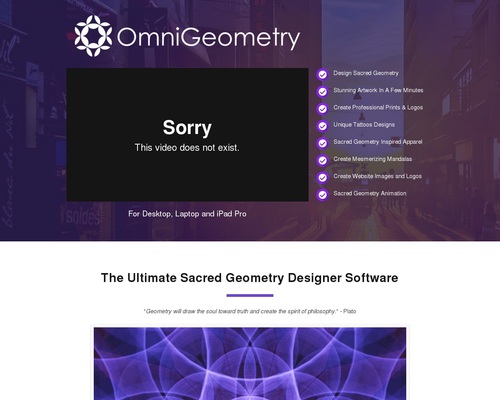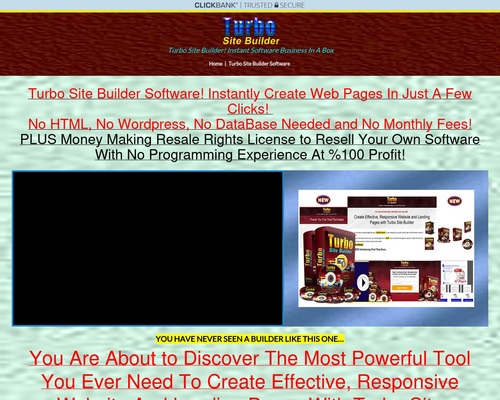
Product Name: Web Content Studio 2022
[ad_1]
Click here to get Web Content Studio 2022 at discounted price while it’s still available…
All orders are protected by SSL encryption – the highest industry standard for online security from trusted vendors.

Web Content Studio 2022 is backed with a 60 Day No Questions Asked Money Back Guarantee. If within the first 60 days of receipt you are not satisfied with Wake Up Lean™, you can request a refund by sending an email to the address given inside the product and we will immediately refund your entire purchase price, with no questions asked.
Description:
Isn’t it time you stopped chasing Google’s Algorithm and just gave Google what it wants? It’s a novel idea, huh?
It certainly allows me to sleep easier at night knowing Google likes my content and wants to push it to the top of the SERPs.
Forget the old style keyword-focused SEO where you pick a keyword phrase you want to rank for, and optimize your page around that specific term and a few of it’s synonyms. That type of SEO does not work anymore, and can get your entire site penalized or removed from Google!
Since 2005, I’ve been using my own methods involving theming content. At first, SEOs laughed at my “naivety”. What I was doing at the time was way above and beyond what was necessary at the time, but it worked. I didn’t care that my methods flew under the radar of other SEOs. My strategy was, and still is, build for the future, not just the here and now. In truth, my methods were light years (in internet terms) ahead of the competition, and only known to my newsletter subscribers, and early adopters of Web Content Studio, which was released in early 2009.
Today, Latent semantic indexing, LSI, theming (all the same thing), is common practice and generally accepted.
Don’t let the term LSI confuse you. It simply means that words and phrases don’t exist in isolation. For any topic you want to write about, there are specific theme words and phrases that are expected to be on the page. If these words are missing, the content cannot be very good. For example, if you were writing a review of the Nikon D300 SLR camera, you don’t focus on the keywords “Nikon D300 review”, you work in related words and phrases like these:
But how exactly do you take advantage of this knowledge? How do you create content that uses LSI for better theming of website content?
Here is a video. In it, you’ll see:
The truth is, Google is looking to wipe out ALL content from the SERPs if it has been “engineered” to rank well by optimizing around specific keywords. Using a keyword phrase 3 to 5 times every 100 words within an article is just not natural. It used to be that Google wanted these “hints” to tell it what a page was about, but today, it considers this type of keyword focused content as spam.
Web Content Studio was created at the end of 2008, beginning of 2009 to help webmasters create content a different way – a way that mimics natural writers.
Suppose you identify the phrase “how does insulin work” as one go want to rank for.
The old keyword-focused method would be to get that phrase into the title, H1 header, opening paragraph etc. Reading the article, you’d know what phrase was being targeted by the webmaster because you’d see it repeated where it wasn’t actually necessary. In other words it was FORCED into the content in an attempt to get it to rank for that phrase.
A medical expert would write about “How does insulin work” naturally without focusing on specific keyword phrases. The exact phrase might be used, but only where it makes sense to do so. There would be no requirement to get that phrase into the body of the article. Instead, the article would be written naturally, with words and phrases being used when they were needed, in the context of the best possible article on the topic.
The article would no doubt have words like: blood sugar, glucose, insulin, regulate, pancreas, blood, circulate, liver, muscle, beta cells, secrete, globulins, etc.
These are the theme words and phrases that would be REQUIRED in an authoritative article on the TOPIC “How does insulin work”.
In one method, you concentrate on one main keyword phrase (OK, you sprinkle in synonyms as well), whereas in the other, you concentrate on the topic.
When a journalist is given a brief for a new article in a magazine, do you think they are told to write around the phrase “blue widgets”? Or is it more likely they’ll be told to write an article on “how blue widgets make our lives so much easier”. See how the first one is keyword-focused, and the second one is theme (or topic) focused?
This is how you need to start thinking about content.
In a conversation I had with Michael Campbell when I was developing Web Content Studio back in 2008, he reminded me that:
“People may not remember that Google didn’t create AdSense. They bought the semantic technology from Applied Semantics back in 2003”.
You can read the press release here
Pay particular interest to this paragraph:
“Applied Semantics is a proven innovator in semantic text processing and online advertising,” said Sergey Brin, Google’s co-founder and president of Technology. “This acquisition will enable Google to create new technologies that make online advertising more useful to users, publishers, and advertisers alike.”
The press release goes on to say:
“Applied Semantics’ products are based on its patented CIRCA technology, which understands, organizes, and extracts knowledge from websites and information repositories in a way that mimics human thought and enables more effective information retrieval”
So, Google certainly has access to technology that can help it understand words on a page in much the same way as a human.
But how does knowing this, help us?
Well, we need to think like a human when we develop content 🙂
Does an article written by an expert in a field repeat the same phrase at a density of 1%? 2%? 5%?
They will write using the words and phrases that they need to use in order to write the best possible article on the topic.
This software will tell you the words and phrases that you need to use, on any topic, as if you were an expert.
It does this by analyzing the top ranked page in Google for the term you are targeting and bringing back the words and phrases used on those pages. After all, if Google is ranking them well, it must think they are the best articles on that topic.
If you think about the content you write on your site, do you come across as someone who knows the topic you are writing about? Would someone actually learn anything by reading your article, or is it published on your site just to try to get an Adsense click? If someone started reading your article, would they want to read the whole thing, or would they think that the article was total fluff, and click the back button?
If Google’s technology can mimic human behavior, then your content must be written for humans.
Suppose you have identified the following phrase as having good potential – copper kitchen sinks – and you want to write an article on it.
What words would be expected in a good quality article on copper kitchen sinks?
Well 5 or more of the top ranking pages in Google include the following 25 words:
copper, sink, sinks, model, kitchen, bath, hammered, bathroom, Mexican, design, finish, custom, craft, hand, round, tile, finishes, bowl, drains, small, style, apron, farmhouse, double, bar.
Looking at that list, don’t you think you’d need to use most of those words?
Let’s look a little closer at Google’s Results Pages as there is something that many people miss. We’ll use the phrase “copper kitchen sinks” as an example:
Google says there are 18,900,000 competing pages for this term. Well that really isn’t what that number means. That 18,900,000 pages is the number of pages Google knows about that are written on the topic of copper kitchen sinks. If we scroll to the end of the search results for this phrase, we get to this page:
Highlighted in yellow, it says that Google only really found 151 pages that offered any value. The other 18,899,849 pages are not included because they are TOO SIMILAR to the 151displayed results.
That’s quite interesting, isn’t it? But where it gets more interesting is that EVERY search phrase has a similar cut off. You’ll find that Google always returns a very small set of pages for any query, usually in the range of 150 – 300 results.
You may be thinking what’s so interesting about that?
Well, by analyzing random pages, I have found that on average, ALL of these included results have one thing in common. They contain a high percentage of ESSENTIAL theme words.
Let’s look at a real example.
The search phrase Astigmatism returns around 5.5 million pages:3
However, scrolling to the last page of results, Google only seems to rate 146 pages:
Let’s consider the top 10 pages first, then we’ll look at those ranking lower down.
All of the top 10 pages that rank for the term “astigmatism” have the following words within their content:
astigmatism, cornea, eye, health, lens, surgery, vision
That should not really be a surprise, but what if I told you that the following words appeared on at least 9 of the top 10 results for the search phrase Astigmatism:
causes, common, contact, lenses, refractive
Also, the following words appear on 8 of the top 10 pages:
care, conditions, corneal, errors, eyes, front, help, keratoconus, light, medical, shape, symptoms, treatment
.. And at least 7 of the top 10 pages had these words:
adults, blurred, center, children, clear, degree, disease, farsightedness, focus, nearsightedness, occurs, problems, retina, surface
Compiling this into a list, 7 or more of the top 10 pages include the following 39 words:
astigmatism, cornea, eye, health, lens, surgery, vision, causes, common, contact, lenses, refractive, care, conditions, corneal, errors, eyes, front, help, keratoconus, light, medical, shape, symptoms, treatment, adults, blurred, center, children, clear, degree, disease, farsightedness, focus, nearsightedness, occurs, problems, retina, surface
That is 39 theme words found on at least 7 of the top 10 pages.
Could it be as simple as thinking that quality content includes a core set of theme words & phrases? I think so, and I’ll show you why I think that.
Google only rates 146 articles for the phrase astigmatism. 4.26 million other pages on this topic are not deemed worthy of showing you.
Let’s look at an analysis of random groups of pages taken from those 146.
For the test, I randomly picked groups of URLs to analyze. These are the positions of the chosen URLs from the 146 results shown:
Position 1 – 10.Position 41- 50 .Position 81 – 90.Position 111-120.
Disclosure: I removed some URLS from this analysis to sites like Amazon and Youtube which tend to rank for any term, based on their huge authority.
Here is a summary of the results:
Do you notice that even those ranking at the bottom of the search results contain a large proportion of the theme words?
The reason all of the web pages included in the results page contain these words is because these words are ESSENTIAL to the topic of the search term.
Do you think this is an isolated example I have chosen?
Well here are some other examples:
Search term: Diabetic alert dogs
Google shows just 299 results for this term at the time of writing.
For this search phrase, Web Content Studio identified the following 33 theme words which were found on 6 or more of the top 10 pages:
trainers, program, mission, medical, person, state, level, scent, right, learn, puppy, form, help, dad, diabetes, trainer, provide, work, type, act, day, use, low, diabetic, training, support, trained, service, train, alert, high, age, dog
Here is the summary table of the results, showing the position of the web pages tested and the percentage of theme words used.
Search Term: Gestational Diabetes
Google returned 383 results for this search term.
For this example Web Content Studio recommended the following 47 theme words:
american, baby, birth, blood, body, care, complications, control, delivery, develop, diabetes, diagnosis, diet, disease, eating, family, food, gestational, glucose, health, healthy, high, insulin, level, low, medical, medicine, normal, oral, pregnancy, pregnant, problem, resources, risk, screening, second, sign, skin, sugar, symptoms, test, time, tolerance, treatment, type, weight, women
These 47 theme words were found on 7 of the top 10 pages in Google that ranked for the term gestational diabetes.
Here is the table of results:
In this case, the pages in the main index averaged around 70+% of the 47 theme words.
I could go on with more examples, but I think you get the idea. From the work I have done, I have seen time and time again that the pages in the main index, on average, are well themed around a core set of theme words.
This is actually what you would expect from a quality article if you think about it.
Imagine writing an article on gestational diabetes…
If your article was to be informative and cover the topic, you would have to include words like:
baby, birth, blood, body, care, complications, control, delivery, develop, diabetes, diagnosis, diet, disease, eating, family, food, gestational, glucose, health, healthy, high, insulin, level, low, medical, medicine, normal, oral, pregnancy, pregnant, problem, resources, risk, screening, second, sign, skin, sugar, symptoms, test, time, tolerance, treatment, type, weight, women
Without most of these words it’s impossible to write a good article on the topic.
I am hoping that a penny has dropped as you have read this page.
What you have seen here is that Google is ranking well-themed, quality content in its main index. In fact, even those that are ranked at the end of the main search results are of a good quality. If your content is not well-themed, you better hope your site has huge authority to help it rank.
I have been working with themed content since 2005. It’s my not so secret weapon in getting my own content ranked. My newsletter subscribers have heard me drone on about it over the years.
But wait… There is even more good news for those who theme their content…..
…..You never have to optimize content for the long-tail, every again!
Theming a page automatically “optimizes” your page for long tail phrases.
Google has changed what information it gives you, so that you often don’t get to see what keywords your pages are being found for. However, remember that I have been theming my content for years, so I still have data I collected before Google started hiding keywords from us. The following screenshots show data from single web pages taken from real sites of mine:
In the last month before Google stopped providing this data, that page was found for 247 DIFFERENT keyword phrases.
In the last year, it was found for…
…. 1632 DIFFERENT long tail phrases.
Let’s look at another page from the same site:
In the last month, that page was found for 260 DIFFERENT keyword searches. In the last year, it was found for…
.. 3078 DIFFERENT keyword searches!
Those pages ranked for a huge number of different keyword phrases, naturally. The only reason they were so successful in sucking in the long-tail traffic was because they were well-themed, and contained all of the relevant theme words. The same theme words, incidentally, that make up the long-tail phrases themselves. Yet as you can imagine, very few (if any) of the long-tail phrases these page ranked for were found on the webpages themselves.
Keyword Spider + WYSIWYG Editor + Theme Reports + Researcher
These products comes with a 60 day no question asked guarantee. Try for 60 days, and if you do not like it for any reason, ask for a refund and I’ll give it to you in full – no questions asked.
Software Requirements: PC running XP or later (Vista, Windows 7, Windows 8 & Windows 10)
If you own a Mac computer, you will need to be running Windows through VirtualBox or similar.
get a massive 45% off the purchase price of Web Content Studio TODAY.
But this offer wont be Hanging Around.
[ad_2]
Click here to get Web Content Studio 2022 at discounted price while it’s still available…
All orders are protected by SSL encryption – the highest industry standard for online security from trusted vendors.

Web Content Studio 2022 is backed with a 60 Day No Questions Asked Money Back Guarantee. If within the first 60 days of receipt you are not satisfied with Wake Up Lean™, you can request a refund by sending an email to the address given inside the product and we will immediately refund your entire purchase price, with no questions asked.








